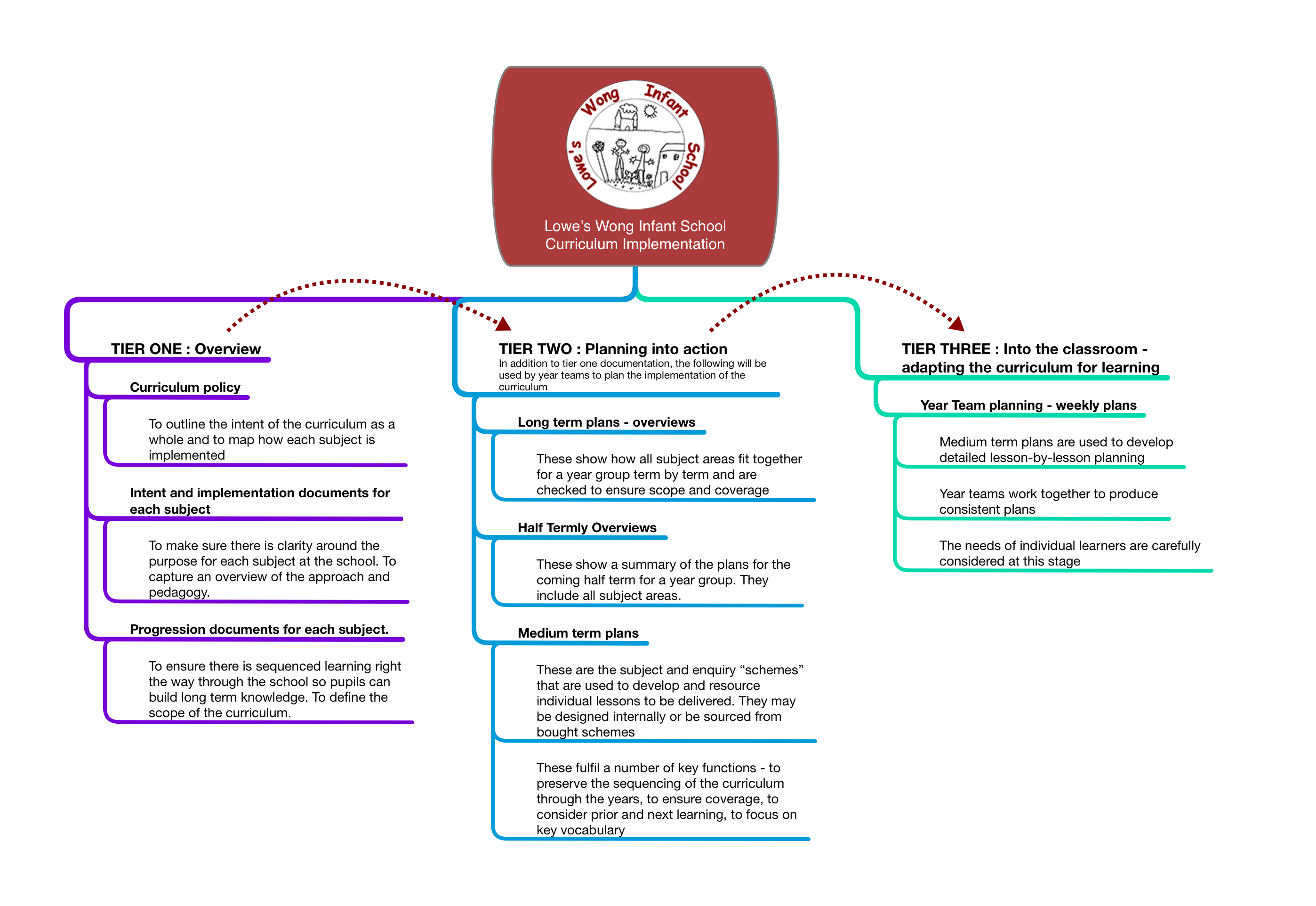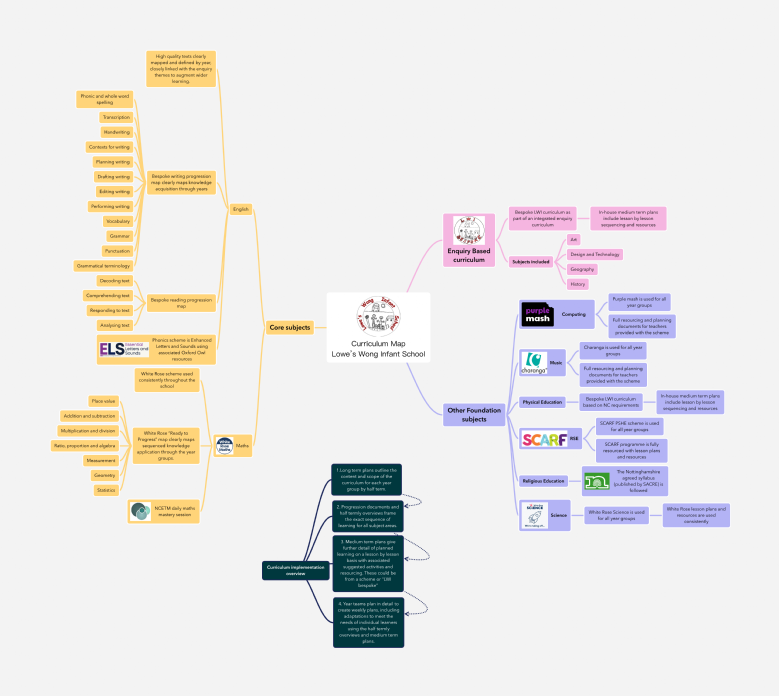Curriculum
Introduction
The curriculum we deliver at Lowe's Wong Infant School sits at the heart of everything we do. Our curriculum is carefully mapped and planned to support learning and progress so that the needs of our children are met and we help every child to flourish. We use the highest quality schemes and have also devised our own enquiry-based curriculum.
Careful planning and sequencing means that teachers deliver the most effective learning for all of our pupils, adapting what they do to meet the needs of all learners.
Our aim is that our curriculum helps every child to learn well, to achieve the very best outcomes, and to flourish in modern society, (our impact).
The information below tells the story of our curriculum and how we deliver it here at Lowe's Wong Infants.
Our curriculum intent
Learning Happily Together: Aims and Objectives of Lowe’s Wong School Curriculum
The curriculum at Lowe's Wong School is centred around the school's motto of "Learning Happily Together." This motto shapes our school’s approach to everything we do, and is encapsulated in both the content of the curriculum and in the school environment.
‘Learning’
Our curriculum cultivates engaged and inquisitive young minds. Enquiry Themes are carefully structured around enquiry-based questions that stimulate all children’s curiosity. We aspire to build and enhance our children’s ability to ask questions, nurturing them to be inquisitive thinkers, allowing them to deepen learning, and providing a challenge for all. Our broad curriculum builds knowledge in all Early Years and National Curriculum subjects, as well as instilling the skills and mindsets children will need for success beyond Lowe’s Wong Infant School.
‘Happily’
Equally important as the learning itself is the happiness and well-being of each child. At Lowe's Wong Infant School, we strive to nurture every child's self-confidence and resilience by emphasising strong, caring relationships between staff and students; "the care staff give to pupils is second to none" (Ofsted 2023). Staff know each child as an individual, and because of this, children who attend our school feel safe and supported to make mistakes, take risks in their learning, and develop perseverance. Ofsted recognised that "the children are well known to staff," further enabling the nurturing environment. We believe that a secure, happy learner builds an enthusiastic and resilient learner.
‘Together’
Finally, we stand proudly at the heart of our local community. Collective experiences are woven into the fabric of our curriculum, enabling collaborative learning, and creating shared memories that form an integral part of our school identity. Whether working together on projects, community events, or immersive learning opportunities, we aim to build a sense of belonging and connections amongst our children. These communal experiences bolster the school's tight-knit, family-like culture, encourage children to learn from and with one another, and foster a sense of togetherness. Our curriculum ultimately aims to nurture well-rounded individuals ready to thrive in modern society.
A map of our curriculum
By clicking on the image below you can download a map of how all of the subjects in our curriculum fit together.
How we implement our curriculum - click here to find out more
Our teachers use clear plans to define the work they do in the classroom with the children. This supports the building of long-term memory and makes sure that children acquire the knowledge they need, while also experiencing our rich curriculum and opportunities to build relationships and learn together. To do this, we use our own curriculum, and also the best schemes chosen to meet our intent. Teachers carefully sequence plans to define what is taught when, and they then carefully adapt their practice and meet the needs of the children they work with.
The diagram below shows how we do this and the key documents teachers use to help them.

Use the links below to find out more information about the curriculum for each year group, and about the individual subject areas.

